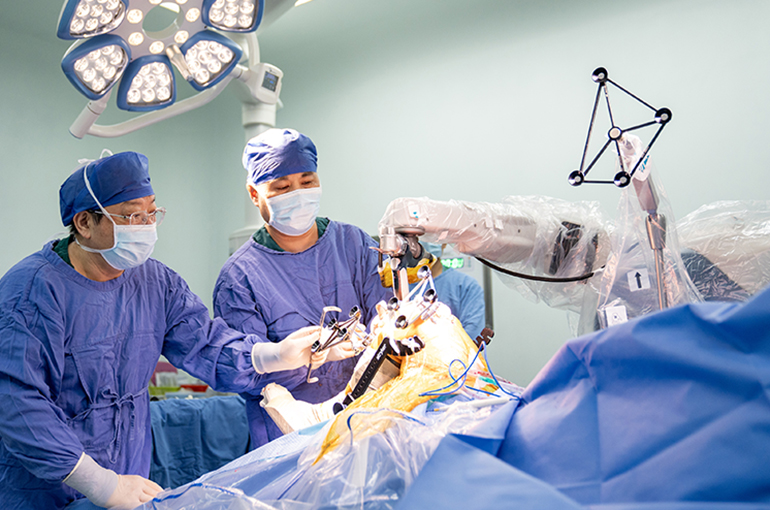 AI Progress to Make Surgical Robots a Bigger Presence in Hospitals, CUHK Professor Says
AI Progress to Make Surgical Robots a Bigger Presence in Hospitals, CUHK Professor Says(Yicai) Oct. 27 -- Surgical robots are poised to play an ever bigger role in hospitals thanks to progress in artificial intelligence, according to Dou Qi, an associate professor in the department of computer science and engineering at the Chinese University of Hong Kong.
The robots are already used in more than two million surgeries worldwide every year, Dou told Yicai in an interview, and their "autonomous driving" level can be increased to make their role more important.
Dou’s team has successfully developed the world’s first multi-functional embodied AI platform for surgical robots. It has also completed the globe’s first autonomous surgery in a clinical setting in August, using a laparoscopic surgical robot developed by Hong Kong-based Cornerstone Robotics.
The key difficulties include “the complexity of surgery and the universality of AI,” Dou said, noting that all patients have different internal physical conditions, and doctors also have their own practices when it comes to operations. The plan is to develop AI tools that can assist in different areas.
“Based on general AI technologies, we aim to enable surgical robots to perform operations autonomously under conditions of different lighting and different vessel thicknesses. This requires great efforts to realize,” said Dou.
Dou’s research project "Embodied Intelligence in Surgical Robots," was selected for the 2025 He Xiangjian Science Foundation Young Scientist Program in the life sciences field and received CNY2 million (USD281,500) in funding.
Dou said the funds will be used in the research and development of large AI models. Using the team’s AI platform for surgical robots, called SurRoL, the project aims to further enhance the autonomous operation of surgical robots.
The level can be raised from L2 to L3, Dou said, with L2 referring to the autonomous operation of a single surgical step, while L3 is the autonomous operation of long-range tasks and more complicated multi-step surgeries.
Editor: Tom Litting